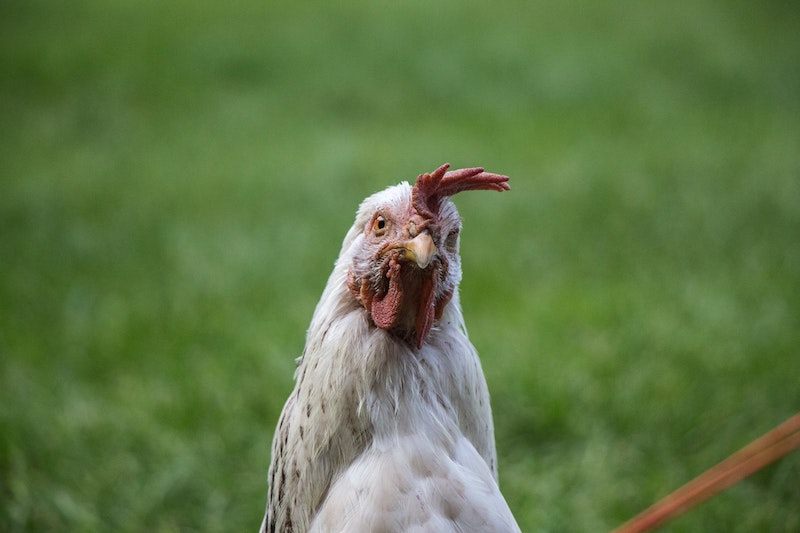
Backyard Poultry Basics by Dr. Sarah Roelofs
Raising chickens has become more and more popular in recent years. You need to be sure you are familiar with your local city or county ordinances where you live. If you have a local neighborhood association, then find out what their rules might be. In some cities, domestic ducks are included as acceptable backyard poultry. In other locals, only domestic chickens are legal to keep as backyard pets, and your pet duck could be confiscated. Check your own local ordinances before investing in poultry and setting up a coop.
The following are a few medical points that many backyard poultry owners may not be familiar with.
First, I would strongly recommend getting your chicks from a reputable source that vaccinate against Marek’s disease. It is a common disease that affects chickens when they are a few months old. Unfortunately, it is a progressive disease that does not have a cure. Salmonella is another infectious disease. It is caused by a bacteria that infected poultry can shed in their droppings, and then pass along to their human caregivers. Farm & garden supply centers sometimes have a higher risk of baby chicks that may harbor Salmonella.
My second point, chickens are considered food animals, even if they are backyard pet chickens. The USDA (US Dept of Agriculture) has strict regulations concerning which medications and antibiotics can be used legally in animals intended for meat or egg consumption by humans. This can make it complicated when a pet chicken gets sick. Most of the time, use of medications will require that the hen’s eggs must be discarded (not consumed by humans, or fed back to the chickens) for an extended period of time (6-8 weeks).
Another point, is that while infectious diseases are a very serious risk for the commercial poultry industry, they are also a risk for backyard birds. Foreign diseases have cropped up in California and Texas as outbreaks in backyard poultry or hobby birds. These infectious diseases include Avian Influenza. Wild migratory birds are often responsible for bringing Influenza into the US. The highly pathogenic version of Avian Influenza (which can also harm people) has not been found in the US yet. However, in the past 2 years, both Iowa and Nebraska have had farms where a less virulent strain of AI has been found. The USDA Veterinary Services in Lincoln and NE & IA State Extension services have information about infectious diseases, and keeping your backyard birds safe.
The following are some helpful resources:
University of Iowa, Extension service and University of Minnesota, Extension services, see below:
http://www.extension.iastate.edu/smallfarms/establishing-backyard-poultry-flock
http://www.extension.umn.edu/food/small-farms/livestock/poultry/backyard-chicken-basics
The Chicken Health Handbook
Storey’s Guide to Raising Chickens
The Chicken Encyclopedia
Hatching and Brooding Your Own Chicks All 4 books are by Gail Damerow
Backyard Poultry magazine
